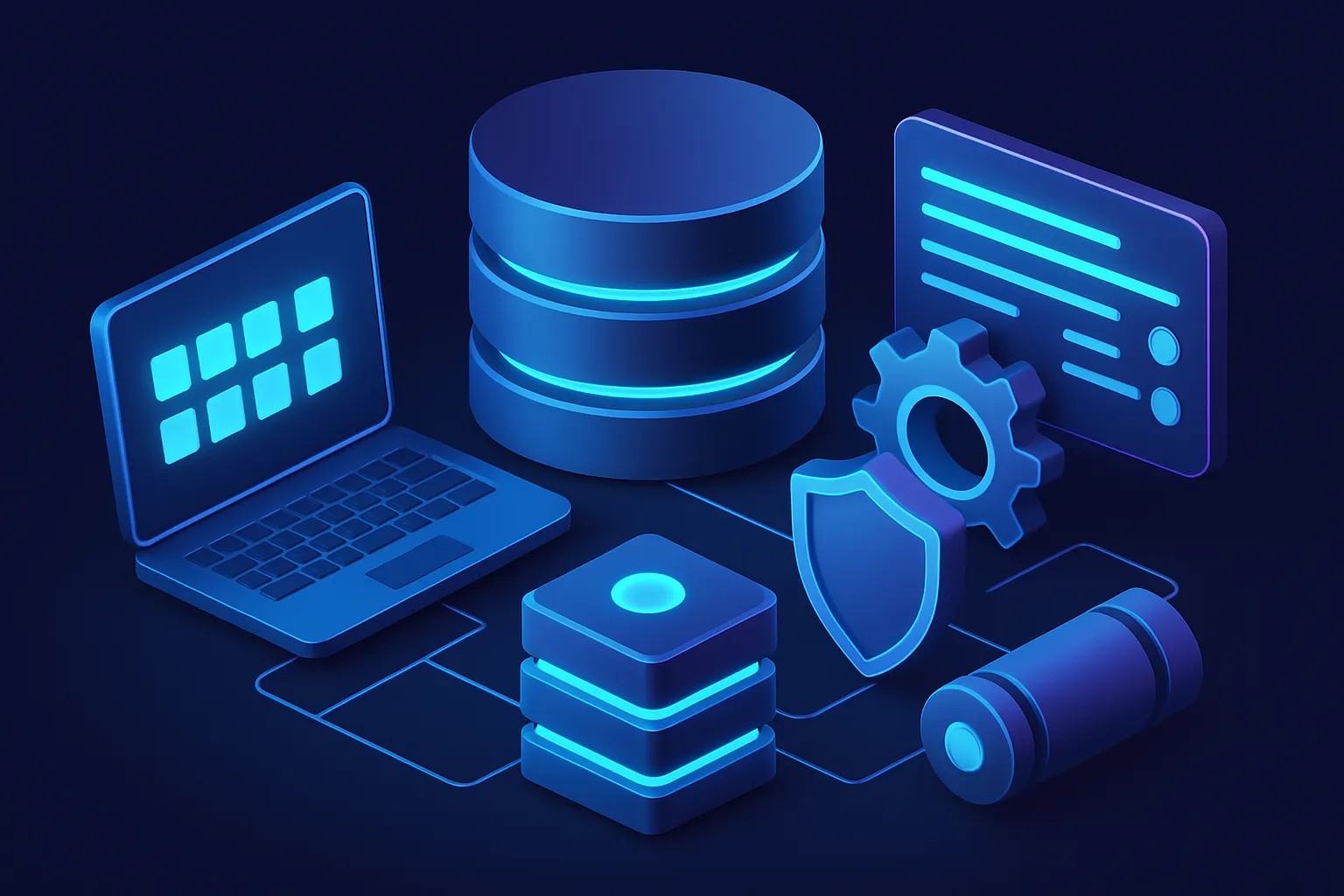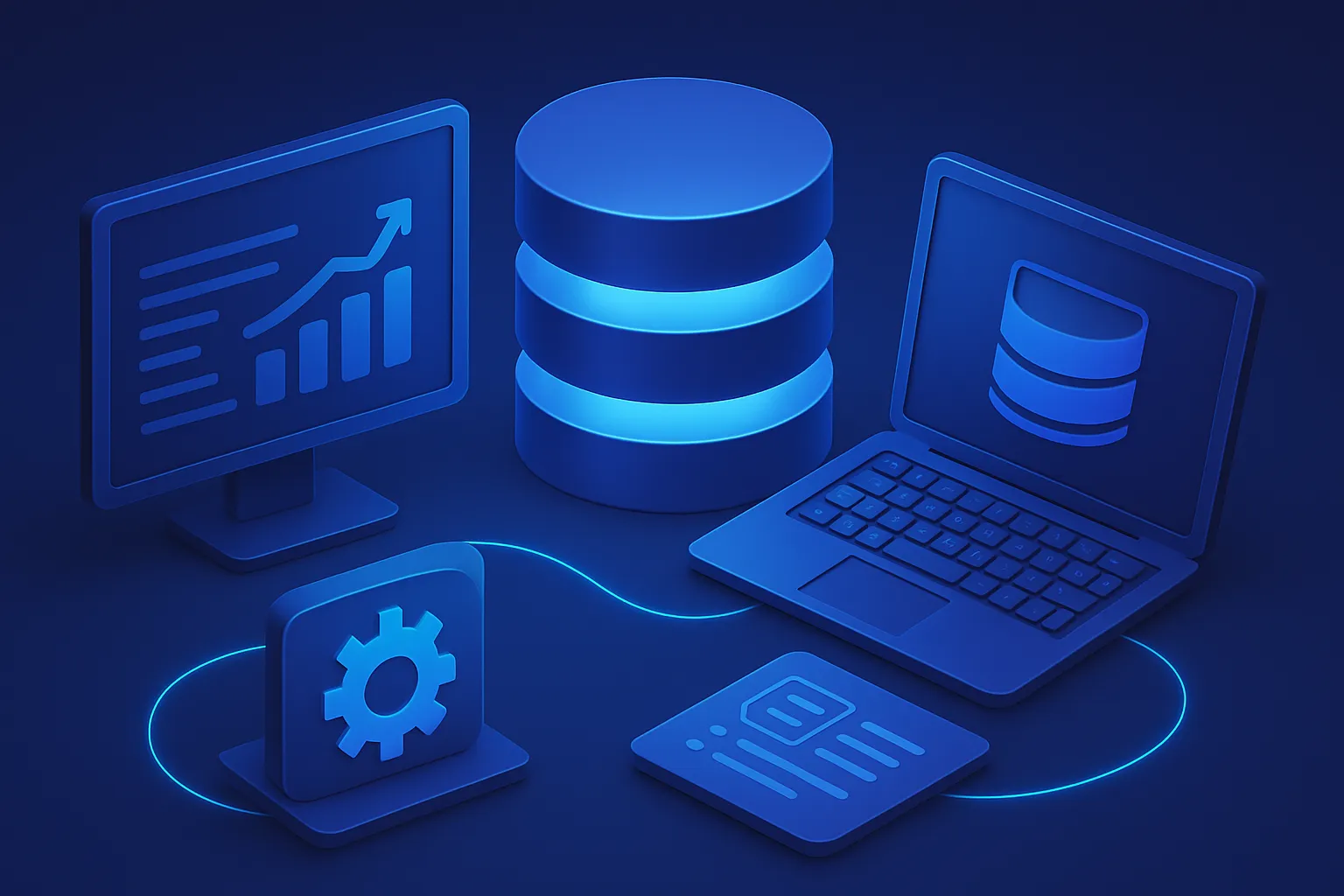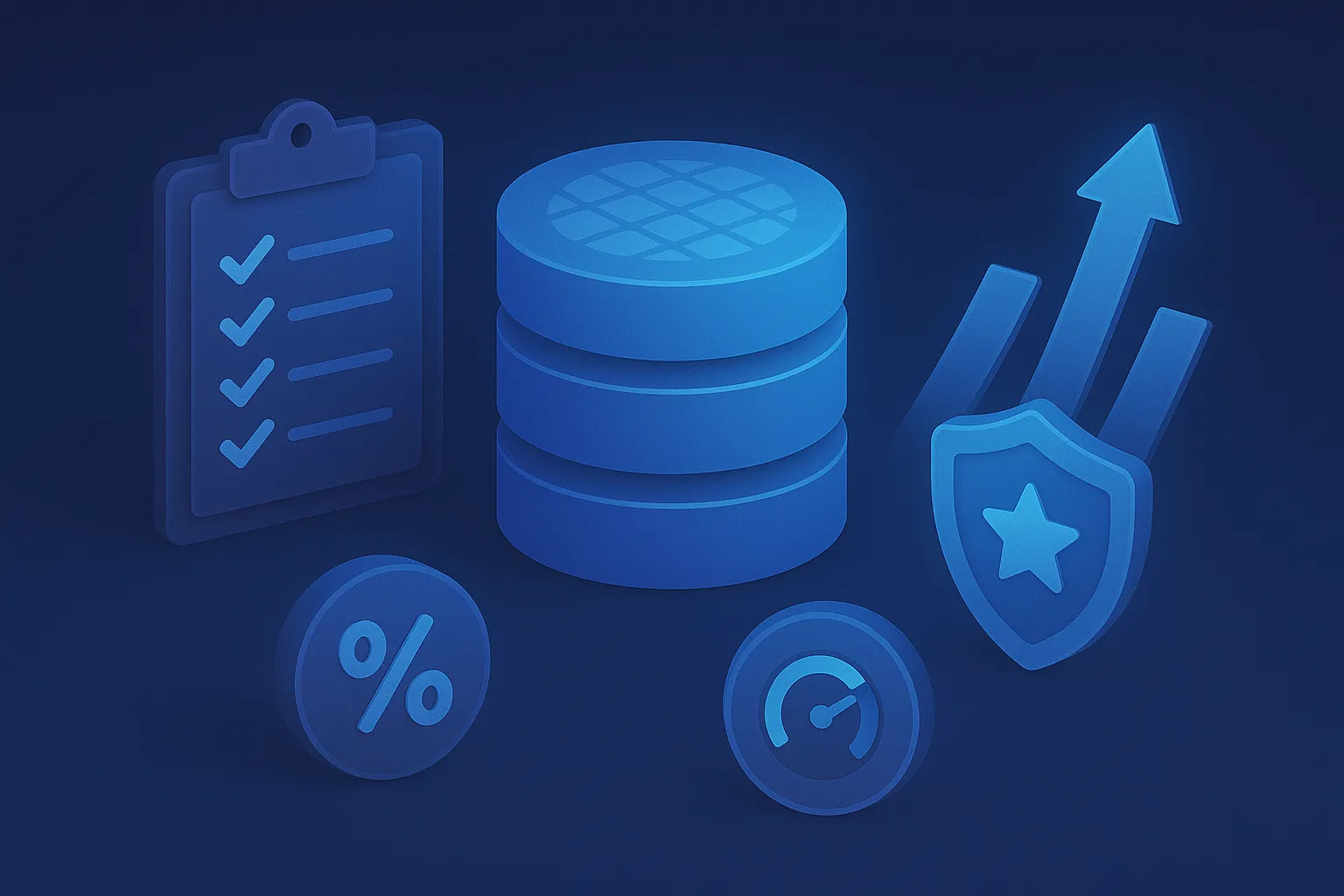August 13, 2025
August 13, 2025

Most organizations today are collecting more data than ever before from customer behavior to operational metrics. But having data is only part of the equation. Without a clear system to organize, secure, and analyze it, data can quickly become overwhelming and underutilized. That’s why businesses are turning to data management solutions: not just to store information, but to make it accessible, trustworthy, and actionable. In this article, we’ll walk through what effective data management really means, explore the key tools and systems available, and help you understand how to choose a solution that fits your unique business needs.
A data management solution is a set of tools, systems, and practices designed to help organizations collect, store, organize, protect, and make sense of their data. Its goal is simple: to ensure that data is accurate, accessible, and usable whenever and wherever it’s needed.
In today’s digital landscape, data comes in many forms and from many sources: customer interactions, transactions, IoT sensors, marketing platforms, and more. Without a centralized system to manage it all, data can become fragmented, duplicated, or even lost making it difficult to use effectively.
A proper data management solution brings structure and control to this complexity. It may include:

By implementing a robust data management solution, businesses can reduce operational inefficiencies, improve data-driven decision-making, and stay compliant with data privacy regulations like GDPR or HIPAA.
If you need a more detailed article to answer the question What is data management?, you can read more in this article.
Not all data management solutions are created equal. Depending on your business goals, industry, and technical infrastructure, the right solution can look very different. Broadly speaking, data management solutions can be categorized based on their purpose, deployment model, and industry specialization.
1. By Purpose: Operational vs. Analytical
2. By Deployment: On-Premise, Cloud-Based, and Hybrid
3. By Industry or Use Case
Different industries require different approaches to data management:
Choosing the right type of data management solution depends on the nature of your data, your business model, and your long-term goals. Understanding these categories helps narrow down the tools and strategies that truly fit your needs.
With the rising complexity and volume of data, businesses need reliable tools to help manage, integrate, and analyze it effectively. Fortunately, the market offers a wide range of data management solutions each with unique features, strengths, and ideal use cases. Below are some of the top tools and platforms trusted by organizations worldwide.

1. Microsoft SQL Server
A long-standing leader in the data management space, Microsoft SQL Server offers robust relational database capabilities, powerful integration services, and advanced analytics features.
2. Oracle Data Management
Oracle provides a comprehensive suite of tools for data storage, integration, governance, and analytics, with powerful performance at scale.
3. Snowflake
A cloud-native data platform, Snowflake enables data warehousing, sharing, and collaboration across organizations all without the need for hardware management.
4. Informatica
Known for its strong data integration capabilities, Informatica is widely used for ETL (Extract, Transform, Load) operations and master data management.
5. Talend
Talend is an open-source-friendly data integration and transformation platform, offering both free and enterprise versions.
6. Apache Hadoop
Apache Hadoop is a distributed data processing framework designed for managing and analyzing massive volumes of unstructured or semi-structured data.
There is no one-size-fits-all solution when it comes to data management. The best tool depends on your data architecture, business needs, team capabilities, and growth plans. In the next section, we’ll help you narrow down the selection by outlining key criteria to consider when choosing a data management solution.
Modern businesses operate in a data-driven world, where the ability to harness and leverage information effectively can set market leaders apart from the rest. Investing in the right data management solutions doesn’t just improve IT operations, it transforms the way organizations function, make decisions, and scale. Below are three core benefits that highlight why data management should be a top strategic priority.

At the heart of every smart decision is trustworthy data. A well-implemented data management solution ensures that data is accurate, up to date, and available when needed whether it's for strategic planning, daily operations, or real-time customer service.
With clean and consistent data across departments, teams can avoid silos, eliminate guesswork, and align decisions with reliable insights. From sales forecasting to product development, data-backed decisions are faster, more confident, and more likely to succeed.
In addition, many modern tools include built-in analytics, dashboards, and reporting features, empowering even non-technical users to extract value from data without needing to rely entirely on IT or data science teams.
As privacy regulations tighten and cyber threats evolve, safeguarding data is no longer optional. Data management solutions offer built-in security protocols, user access controls, and audit trails that help businesses meet regulatory requirements such as GDPR, HIPAA, or CCPA.
Beyond compliance, these systems also minimize the risk of data breaches, loss, or misuse protecting both your reputation and your bottom line. Features like role-based access, encryption, and data masking ensure that sensitive information is only accessible to authorized users.
For industries that handle high-stakes data (like healthcare or finance), having a robust data governance framework isn't just about avoiding fines, it's about building trust with customers and stakeholders.
Disorganized or duplicated data can slow down teams, cause errors, and lead to inefficient workflows. Data management solutions streamline the way information flows across your organization automating routine tasks, reducing manual data entry, and minimizing redundancies.
For example, with a centralized data repository and integrated systems, updates made in one platform can automatically reflect across others eliminating the need for repetitive work. This operational efficiency not only saves time but also cuts costs associated with data cleanup, reconciliation, and IT maintenance.
In the long run, better data management means employees spend less time “looking for the right file” and more time acting on insights that move the business forward.
When implemented thoughtfully, data management solutions unlock a powerful combination of insight, control, and agility. They form the foundation for scalable growth and digital innovation ensuring your organization is ready for whatever comes next.
Every organization’s data challenges are different and off-the-shelf tools don’t always fit the nuances of your operations, growth plans, or compliance needs. At Serdao, we focus on building tailored data management solutions that align with your business structure, technology stack, and long-term goals.

Whether you need to streamline fragmented systems, unify siloed data sources, or build a scalable architecture from the ground up, our team works closely with you to design a solution that’s not only functional, but future-proof. We combine best-in-class tools with deep industry insight to ensure your data becomes a strategic asset not just a technical concern.
More than a service provider, Serdao acts as a long-term partner in your data transformation journey helping you turn complexity into clarity, and information into impact.
To dive deeper into how data is handled at a technical level, explore our detailed breakdown of the computer data management process in information technology.
Conclusion
From choosing the right tools to implementing a strategy that fits your operations, data management solutions lay the groundwork for smarter decisions, stronger security, and scalable growth.
Whether you're modernizing legacy systems or building a data infrastructure from scratch, the key lies in choosing a solution that evolves with your business. If you want a partner who masters both technical and strategic data aspects, Serdao delivers custom solutions turning data into a competitive advantage.